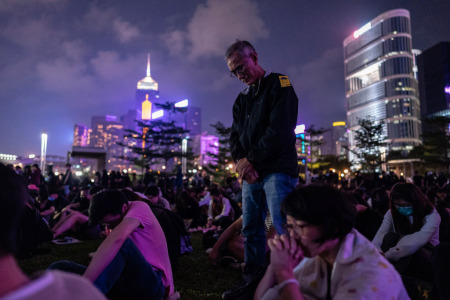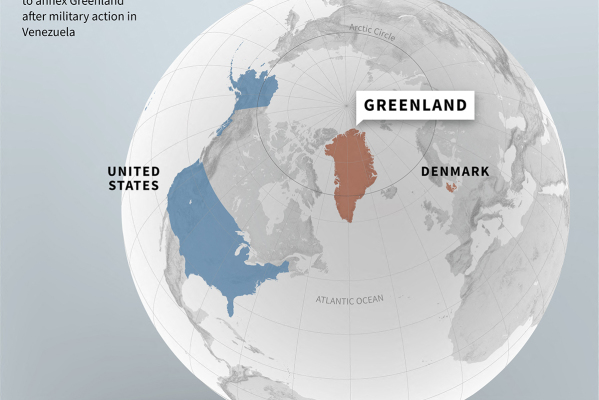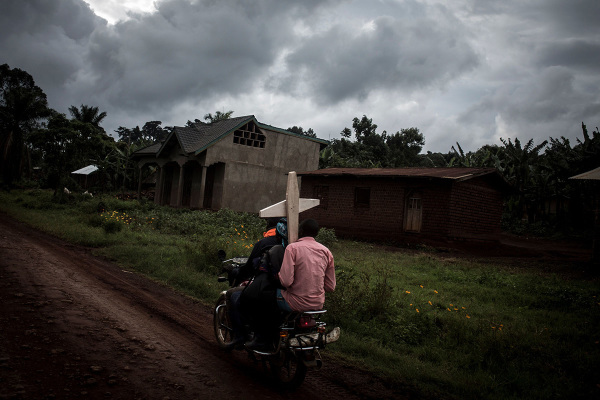Vatican bishop warns Catholic missionaries in Hong Kong of China’s looming crackdown

The Vatican’s unofficial representative in Hong Kong had warned Catholic missions in the city that tough days are ahead for them as China is increasingly restricting religious freedom.
“Change is coming, and you’d better be prepared," Mexico-born Monsignor Javier Herrera Corona, a bishop who served in the city for six years before his term ended in March, told the city’s Catholic missions that month, Reuters reported. "Hong Kong is not the great Catholic beachhead it was."
Herrera-Corona warned about the coming restrictions in four meetings with the Catholic missions in Hong Kong between last October and March.
The 54-year-old from Mexico who is now an archbishop in the Republic of Congo and Gabon said that Hong Kong’s closer integration with China could lead to mainland-style restrictions on religious groups.
According to Reuters, Herrera-Corona and other envoys at the unofficial mission in the city had begun discreetly moving cases of archives overseas for safekeeping even before the National Security Law was enforced in 2020, ending a high degree of autonomy for Hong Kong following the 1997 British handover.
Hong Kong’s National Security Law can restrict fundamental freedoms and has four categories of crimes: succession, subversion of state power, local terrorist activities and collaborating with foreign or external foreign forces to endanger national security.
“The law also positions Beijing as over the Hong Kong judicial system in cases deemed related to national security,” the U.S.-based watchdog group China Aid reported. “This means that the judges in these cases must be Beijing-approved. Hong Kong residents can now also be taken to China, where they will face a courtroom with allegiance to the government.”
In May, Chinese officials arrested 90-year-old former archbishop of Hong Kong Cardinal Joseph Zen for charges related to Hong Kong's National Security Law. He was arrested with trustees of the 612 Humanitarian Relief Fund, who backed protesters in the 2019 pro-democracy protests.
Earlier this year, a Chinese state-owned newspaper accused churches and Cardinal Zen of inciting Hong Kong's pro-democracy protests and called for greater control over Hong Kong by the Chinese Communist Party.
Late last month, the Rev. Jonathan Aitken, an Anglican priest, former United Kingdom cabinet minister and member of Parliament, also warned about restrictions as Chinese President Xi Jinping marked the 25th anniversary of the city’s handover from Britain to China.
“The skies are darkening for religious freedom in Hong Kong,” Aitken said during a speech at the National Club in London on June 29, UCA News reported. “There are increasingly ominous signs” that religious freedom in Hong Kong is “next on the hit list by the destructive forces” of Xi’s regime.
China has often been accused of rights abuses against religious minorities, including Christians, Tibetan Buddhists, Falun Gong practitioners and Uyghur Muslims.
Open Doors USA, which covers persecution in over 60 countries, estimates that China has more than 97 million Christians, many of whom worship in unregistered or so-called “illegal” underground churches.
The five state-sanctioned religious groups in China are the Buddhist Association of China, the Chinese Taoist Association, the Islamic Association of China, the Protestant Three-Self Patriotic Movement and the Chinese Patriotic Catholic Association.
Even the organizations within the five authorized religions are subject to surveillance and limitations.
Internet censorship targeting Christians in China, including government-sanctioned Christian groups, is severe.
In April, a well-known Christian website disappeared after serving believers for about 21 years.
China has been labeled for years by the U.S. State Department as a “country of particular concern” for egregious religious freedom violations.
The U.S. has accused the Chinese Communist Party of committing genocide against the Uyghurs, a Muslim ethnic minority of approximately 12 million people heavily concentrated in the Western province of Xinjiang. Estimates suggest that over 1 million people, including Uyghurs and other mostly Muslim ethnic groups, have been held in tightly-controlled concentration camps in Xinjiang.
In those camps, prisoners are taught to be secular citizens who will never oppose the ruling Communist Party. Those who have fled from the region have spoken of forced abortions and the torture they experienced.
China has continually denied allegations of unjustly detaining Uighur and other ethnic minority Muslims.





















